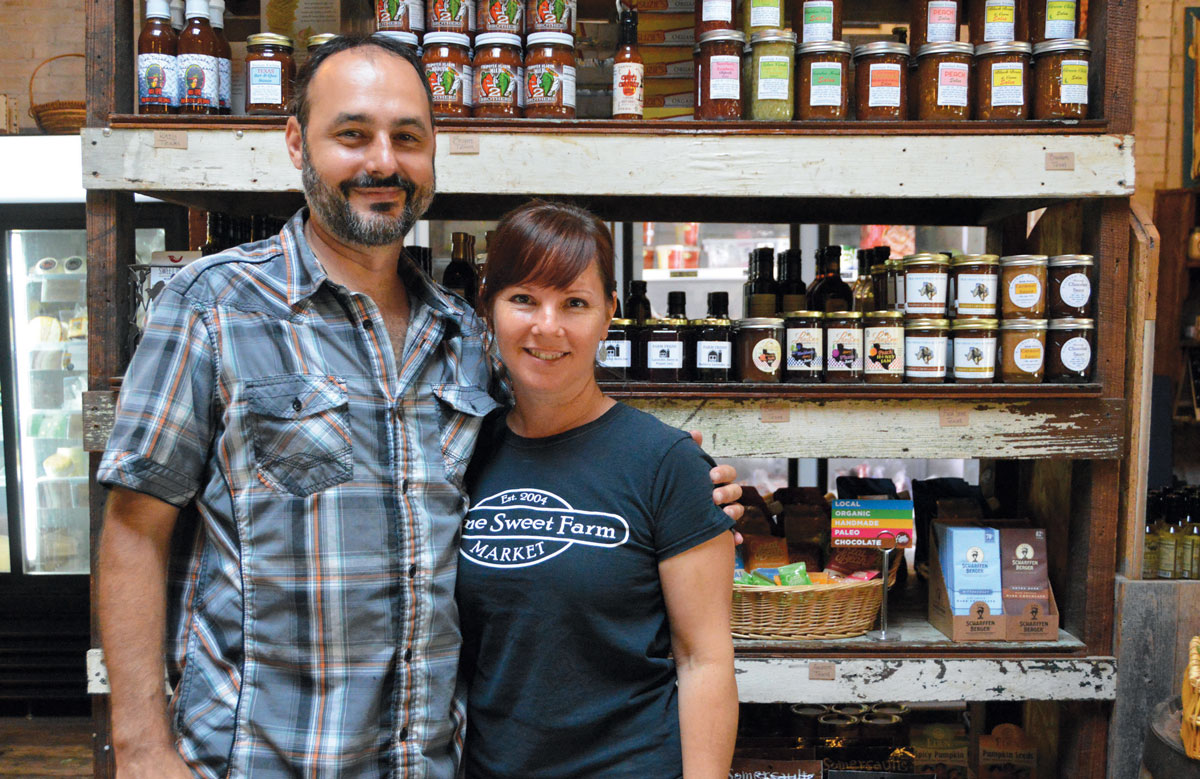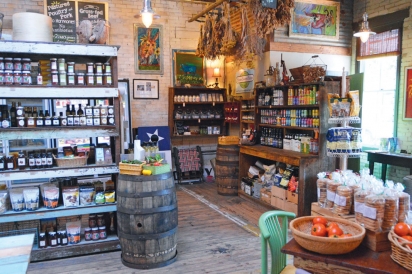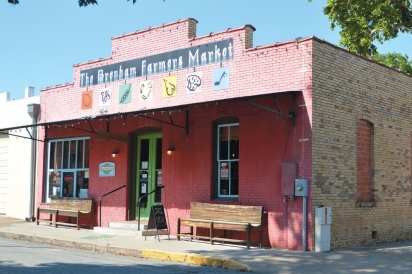Home Sweet Farm - Growing a Food Network
Growing A Network
The term “local” as it pertains to food sourcing seems ever-present on menus, product labels and in mission statements of chefs—a reflection of its growing importance to socially conscience consumers. And while supporting what’s local is a noble, necessary and well-intentioned endeavor, sometimes in an unforeseen and contradictory twist, it’s the most local folks of all who get squeezed out of the equation.
This can happen when a small rural farmer is unable to sell all of his vegetables in a CSA program due to logistics of travel or when a jam producer has no place to sell her homemade goodies because she doesn’t have a commercial license for selling in retail outlets. At Home Sweet Farm in Brenham, Texas, Brad and Jenny Stufflebeam are developing and supporting a network that connects small-town producers to big-city consumers and to each other in a way that goes deeper and gets more personal.
“Our goal is to revitalize the rural economy,” says Brad during at visit to his farm market and biergarten, which hug a corner block in historic downtown. “Everyone in Houston and Austin thinks ‘local’ is inside their loop but it’s really these guys out here.”
“These guys” are the 50+ farmers and food manufacturers located within a 50-mile radius of Brenham—producing everything from vegetables and meats to jams, honey, cheeses and craft beer—that collaborate in some way with Home Sweet Farm. Perhaps the property’s present-day use was preordained: the G.F. Giesecke and Brothers Brewery operated as the second-largest brewery in Texas on this very land from 1874 to 1880.
By focusing on what Brad calls “extreme local,” he and Jenny, along with a growing cadre of philanthropists and investors who wish to remain anonymous, are renovating buildings that will eventually house a lounge and, perhaps most exciting, a community kitchen of commercial rental space where the fruits of local labors can really take hold. Longtime friend and chef Jesse Griffiths of Dai Due in Austin is consulting on the plans for the 2,400-square-foot former1890s warehouse that will be available for lease 24/7 to virtually any serious food manufacturer. Also in the plans are workshops, private parties and retail space with a target opening date of late September 2016 (applications for 2017 are currently being accepted).
Brad plans to invite national names like Rick Bayless and Deborah Madison to teach weekend-long classes for a truly exceptional experience. Ultimately, though, the kitchen will serve as a link between producers of all kinds, offering a new layer of diversity to what farmers and producers can bring to customers, particularly when good weather results in a bumper crop.
Take for example the farmer with an excess of tomatoes or cucumbers but no time to allocate to canning those harvests before they decay. A local canner could form a partnership and utilize the kitchen to produce tomato sauce or pickles for sale in Brenham and potentially reach an audience in larger stores like Central Market and Whole Foods. Despite the cottage law that allows direct sale of certain goods to customers, selling through retail outlets requires production in a commercial kitchen and such resources for independent producers are scarce.
“A lot of times this kind of attention is brought into bigger cities but we really need to get it out to the country where it’s closer to local producers,” says Brad. “That’s really what we’re trying to do here. Fifty to 60 years ago there was an infrastructure in place for local agriculture and now there’s not.”
The building will also serve as a commissary for food trucks while an onsite urban farm will further supply and inspire those in the kitchen. The creation of offshoot small businesses ensures a diverse collection of assets will remain in the community, providing long-term growth to secure the town as a destination and meeting ground for folks coming from cities including Houston, Austin and San Antonio that are all an easy day trip from Brenham.
Part of this Texas renaissance, as Brad describes it, is expected to flourish in the vacant buildings down the street that will eventually house art studios, galleries and other creative spaces as part of the town’s master plan to create a music/entertainment district. It’s about “putting culture back in agriculture,” says Brad. “And that’s really happening. Besides just food it includes all the arts: food is art, beer is art, music is art.” In the meantime, visitors can grab a cold pint of craft beer and enjoy live music behind the market under an open sky.
In their mid-40s, Brad and Jenny aren’t old enough, really, to describe in terms of legacy but it’s not exactly out of place to do so either, especially since they’ve brought up their now-teen daughters in such a rich environment that begs to be kept in the family. It’s also because the energy they are putting into Brenham could be embraced and imitated in any number of small towns across the state or even the country. It is their hope that others will implement similar strategies and keep the spirits of small-town and surrounding rural communities alive and thriving.
“I think what’s important is what we do to really inspire people [and] the fact that we are doing it,” says Brad. “And that’s what I ultimately hope, that this is a model that can be replicated.”
In a sense the birthplace of Texas is reviving the old ways for the next generation—one ingredient, sip and note at a time.






